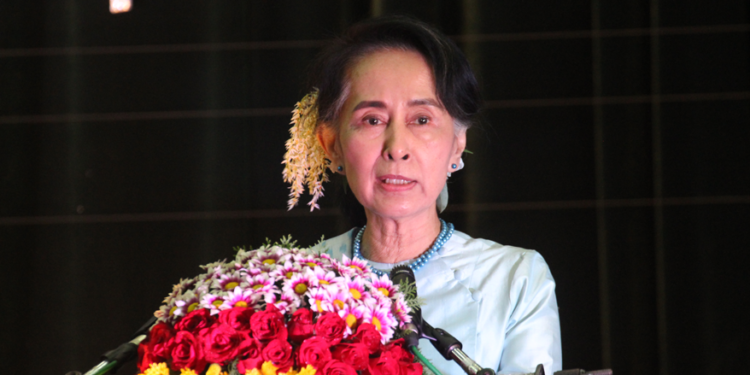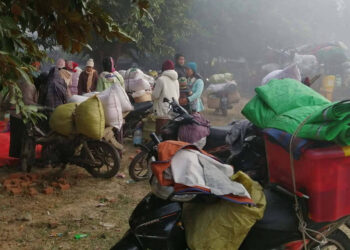Myanmar’s detained leader Daw Aung San Suu Kyi has denied testimony from one of her ousted government’s chief ministers that she took a bribe from him, dismissing his claims as “all absurd”, according to her lawyers.
Testifying as a civilian witness, detained Yangon Chief Minister U Phyo Min Thein told the court last week that he paid her US$600,000 and 7 viss (11.4 kg) of gold. The regime has charged Daw Aung San Suu Kyi with corruption.
“She said she didn’t take anything [from him], and he didn’t pay her the gold or dollars,” U Kyi Win, one of her lawyers, quoting her as saying. Daw Aung San Suu Kyi’s legal team met with her for a few minutes on Monday before her trial hearings. She is facing 11 charges, including corruption charges, brought by the junta since her arrest following the coup in February.
“She said U Phyo Min Thein was likely to have been forced [by the junta] to say so under detention,” the lawyer said.
Another lawyer said, “‘All absurd’ is what Daw Aung San Suu Kyi commented about the testimony.”
The chief minister has been detained by the regime since February.
In March, the regime released a video that it claimed proved the graft allegation against detained State Counselor Daw Aung San Suu Kyi. In the video, U Phyo Min Thein says he went to meet Daw Aung San Suu Kyi at least three times to give her the money and gold between December 2017 and March 2018. But the video met with public skepticism as the chief minister’s lip movements were not synchronized with the audio.
On Friday, however, he appeared before the court and repeated what he said in the video, becoming the first plaintiff witness against her from the National League for Democracy (NLD). U Phyo Min Thein was a member of the Central Executive Committee of the party led by Daw Aung San Suu Kyi. Unlike other senior NLD leaders and chief ministers, he has not faced any legal charges from the junta.
You may also like these stories:
Karen Armed Group Ambushes Myanmar Junta Regional Commander
The Revolt Against Myanmar’s Junta Can Succeed
Myanmar Needs ‘People First’ Assistance

















